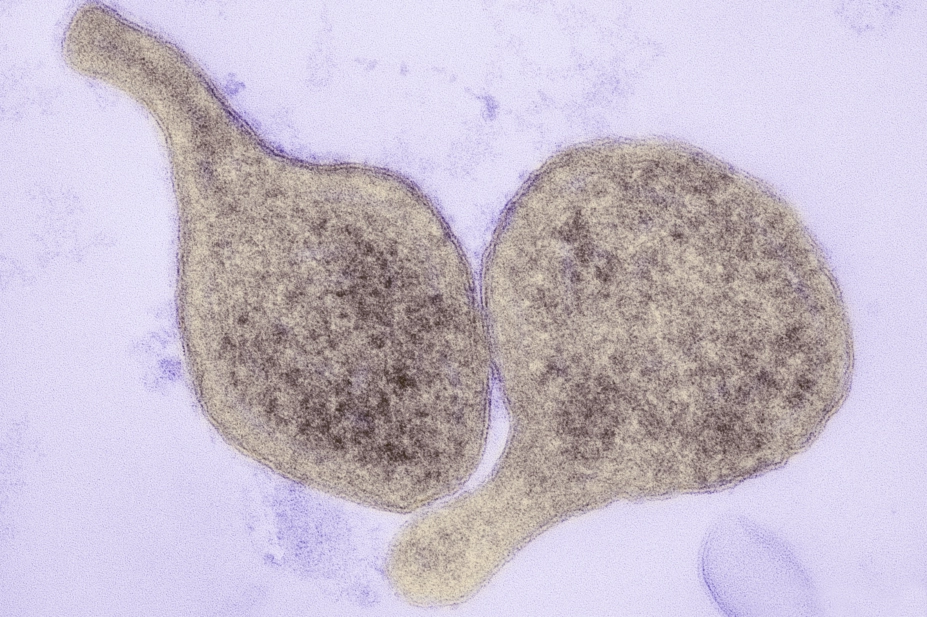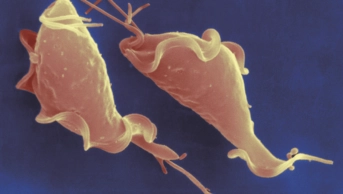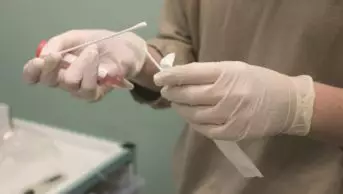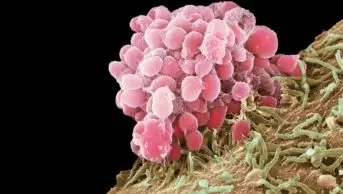
Thomas Deerinck, NCMIR / Science Photo Library
The British Association of Sexual Health and HIV (BASHH) has produced its first guideline for the diagnosis of a little-known but common sexually transmitted infection (STI) called Mycoplasma genitalium (MG), to address concerns that MG has the potential to become a “superbug” within 10 years.
MG is estimated to be carried by between 1-2% of men and women and infections are often asymptomatic. But when patients do experience symptoms, they are similar to those associated with other STIs including Chlamydia. However, unlike Chlamydia, until recently there have been no commercially available diagnostic tests to detect MG, leading some patients to be misdiagnosed and treated for Chlamydia.
According to a BASHH member survey conducted in May 2018, 72% of sexual health experts said that if current practices do not change, MG infections will become a superbug resistant to first- and second-line antibiotics, within a decade.
“MG is rapidly becoming the new ‘superbug’: it’s already increasingly resistant to most of the antibiotics we use to treat Chlamydia, and changes its pattern of resistance during treatment so it’s like trying to hit a moving target,” said Peter Greenhouse, a sexual health consultant from Bristol.
The BASHH guidelines, accredited by the National Institute of Health and Care Excellence and published on 11 July 2018, say that current treatments for the infection are imperfect and associated with the development of antimicrobial resistance. MG is resistant to macrolides in an estimated 40% of cases in the UK; however, it responds to azithromycin in the majority of cases.
“MG is treated with antibiotics, but as until recently there has been no commercially available test it has often been misdiagnosed as Chlamydia and treated as such,” said BASHH spokesperson Paddy Horner, who developed the guidelines.
“This is not curing the infection and is causing antimicrobial resistance in MG patients — if practices do not change and the tests are not used, MG has the potential to become a superbug within a decade, resistant to standard antibiotics.”
In terms of screening, the guideline recommend testing for MG infection in people with non-gonococcal urethritis, symptoms of pelvic inflammatory disease, bleeding after sex, epididymitis and sexually-acquired proctitis.
Although tests for MG have recently been developed, they are not available in all clinics yet. However, Public Health England offers MG testing for a fee.
Research carried out by BASHH, also published on 11 July 2018, has revealed that seven in ten sexual health experts around the country said that they could not afford the diagnostic test recommended by the guidelines, and only one in ten UK public health commissioners said they were making provisions for testing equipment in their 2019 budgets.
Consequently, BASHH said it was “extremely concerned” that the guidance may not be implemented in time to prevent the infection. This could mean that up to 3000 women per year who have pelvic inflammatory disease caused by MG could be at increased risk of infertility.
“Resources are urgently needed to ensure that diagnostic and antimicrobial resistance testing is available for women with the condition who are at high risk of infertility,” said Horner.


